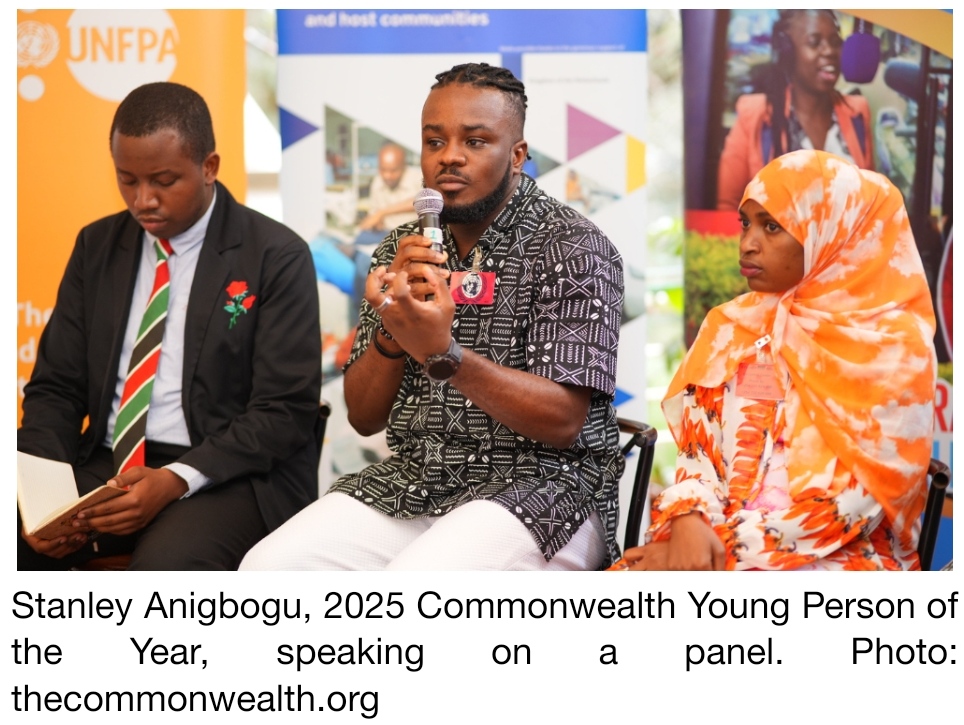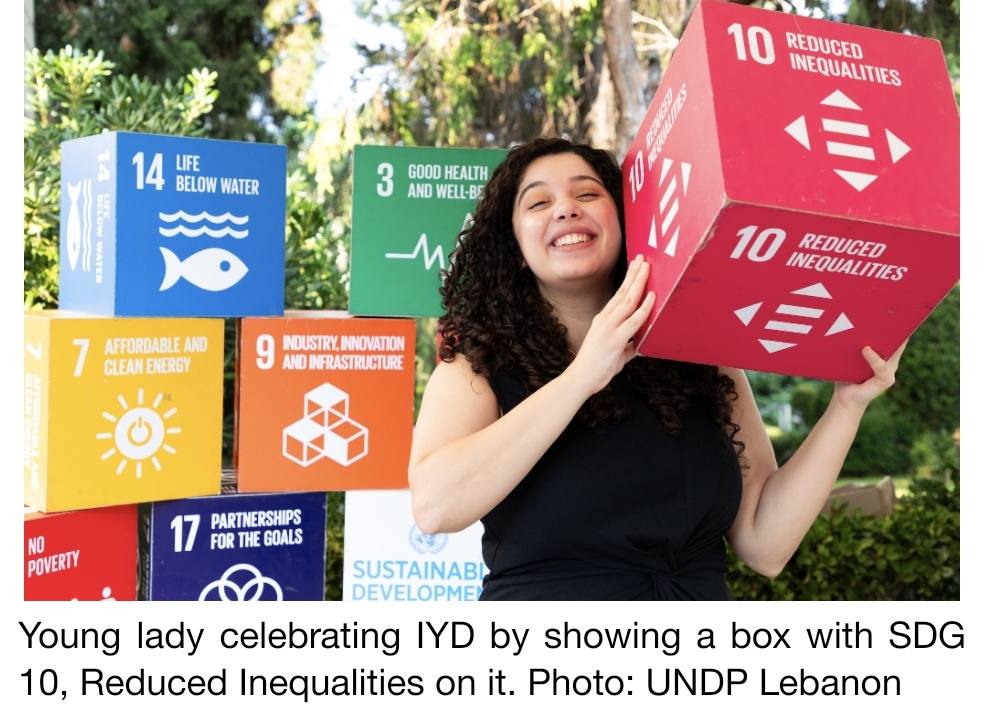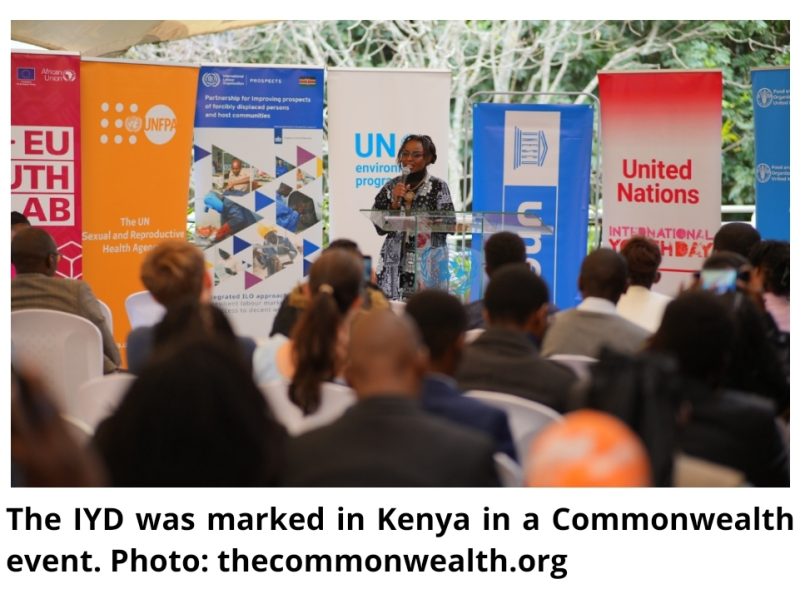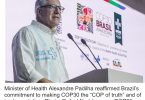As the global community nears the midpoint of the 2030 Agenda for Sustainable Development, this year’s International Youth Day (IYD) turns the spotlight to the decisive role young people play in driving change within their communities.
The 2025 theme, “Local Youth Actions for the SDGs and Beyond,” highlights how locally led initiatives are shaping global progress and ensuring that the Sustainable Development Goals (SDGs) are not only aspirational but achievable.

Marking the 30th anniversary of the World Program of Action for Youth, the official celebration takes place in Nairobi, Kenya, in partnership with UN-Habitat, bringing together youth leaders, local government representatives, policymakers, and development practitioners from across the globe.
“Global progress begins in communities,” said United Nations Secretary-General António Guterres in his annual message. “Young people are bold innovators, resilient organizers, and essential partners in achieving the Sustainable Development Goals. When young people lead, societies thrive.”
Youth and the Local Path to Global Progress
While the SDGs are global in ambition, their success depends largely on local delivery. Over two-thirds of SDG targets are tied to the mandates of local and regional governments, making community-based action a critical driver of progress.
Young people, often at the forefront of innovation and advocacy, bring unique advantages: an openness to new ideas, strong peer networks, and an ability to mobilize rapidly through digital platforms. Globally, 1.2 billion young people aged 15 to 24—around 16% of the world’s population—represent a demographic with extraordinary potential to shape policies, influence markets, and strengthen democratic participation.

The World Program of Action for Youth, adopted in 1995, established a framework for integrating youth priorities into national development strategies. Thirty years on, its principles remain relevant, but the focus now is on deepening youth participation in governance structures where decisions are made and resources are allocated.
From rural cooperatives that promote sustainable agriculture to youth-led campaigns for climate resilience, the work of young people demonstrates that local action can have a far-reaching impact. This is particularly relevant in addressing SDGs such as quality education, gender equality, decent work, and climate action—areas where grassroots engagement can accelerate change more effectively than top-down measures alone.
A Nairobi Gathering with Global Reach
For more than half a century, the Commonwealth Secretariat has been a steadfast champion of youth empowerment across its 56 member countries — equipping young people with the skills, resources, and platforms to lead development efforts. This year, that mission took center stage at the official UN observance of International Youth Day (IYD) 2025, held on 12 August in Nairobi, Kenya.
Organized in partnership with the UN Department of Economic and Social Affairs (UNDESA) and UN-Habitat, the event brought together youth leaders, policymakers, and development partners to explore the transformative role of young people in localizing the Sustainable Development Goals (SDGs). The Nairobi gathering was part of a month-long series of IYD celebrations involving the Commonwealth Secretariat across different regions.
“When young people are given a seat at the table, they bring energy and insight that revitalizes governance,” said Maimunah Mohd Sharif, Executive Director of UN-Habitat. “Local action led by youth is one of the most effective ways to make global commitments real.”
Nairobi’s observance featured notable past winners of the Commonwealth Youth Awards, which celebrate innovative, youth-led solutions to global challenges.
Among them was Stanley Anigbogu, the 2025 Commonwealth Young Person of the Year and founder of LightEd. His organization turns waste into solar innovations, providing clean energy to over 10,000 refugees across Africa.
Also present was Fredrick Kioko Kilonzo from Kenya, honored for his Naturehub Collective project, which has conserved 500 hectares of habitat, engaged more than 1,000 locals, and created 50 green jobs.
Reflecting on the event, Fredrick said:
“We’re all facing the same challenges but finding innovative, locally relevant solutions. Even small grants can catalyze massive community impact. This event reinforces that young people aren’t just the leaders of tomorrow — we’re the changemakers of today.”
Building Long-Term Foundations for Youth Leadership
Celebrating youth contributions is important, but equally essential is the creation of conditions that allow these contributions to flourish. Long-term, systemic inclusion requires:
- Sustainable funding channels for youth-led initiatives, particularly in underserved regions.
- Capacity-building programs that equip young leaders with governance, advocacy, and project management skills.
- Institutional pathways for youth representation in formal decision-making bodies, from local councils to national advisory boards.
These measures go beyond symbolic gestures; they enhance policy effectiveness by ensuring that decisions reflect the perspectives of those who will live longest with their consequences.
“The SDGs cannot be achieved without young people,” said Jayathma Wickramanayake, the UN Secretary-General’s Envoy on Youth. “But young people cannot meet these goals alone. They need institutions that trust them, resources that support them, and spaces where they can lead.”
This year’s theme, “Local Youth Actions for the SDGs and Beyond”, reinforces a key truth: over 65% of SDG targets depend on local and regional government action. Empowering youth at the community level is essential to achieving these goals.
As Mr. Junhua Li, UN Under-Secretary-General for Economic and Social Affairs, noted in his IYD message:
“By empowering young people, we unlock a powerful and effective force for sustainable development, shifting towards more inclusive and participatory processes, amplifying diverse voices, building trust, and delivering lasting solutions.”
Youth Leading Change in the Arab States
Beyond the Commonwealth, youth across the Arab States region are also stepping up to address systemic challenges. With over 110 million people aged 15–29, the region has an unprecedented youth cohort — but also faces high unemployment, limited access to decision-making spaces, and persistent socio-economic inequalities.
Against these odds, young leaders are creating solutions that localize the SDGs:
- Adem Guesmi (Tunisia), 18, has championed climate justice, led a 300-youth climate awareness program, and spearheaded school rehabilitation projects.
- Du’aa Ibrahim Al-Faraya (Jordan), 24, supports youth entrepreneurship as a coordinator at iPARK, helping over 45 startups create jobs and foster inclusive economic growth.
- Carole Nassreddine (Lebanon), 25, merges environmental research with grassroots education, influencing climate policy and representing West Asia in global forums.
- Hala Qashou (Jordan), 24, co-founded “LAHA,” leading to landmark legal reforms protecting women’s workplace rights.
These stories reflect the UNDP ShababEEK initiative’s approach: equipping youth with skills, mentorship, and networks to lead from the ground up.
About International Youth Day
Established by the United Nations General Assembly in 1999, International Youth Day is observed annually on 12 August to recognize the role of young people in development and to promote their engagement in political, economic, and social life. Each year focuses on a theme that reflects emerging priorities in youth empowerment and participation.
Written by Dr. Florence Omisakin








